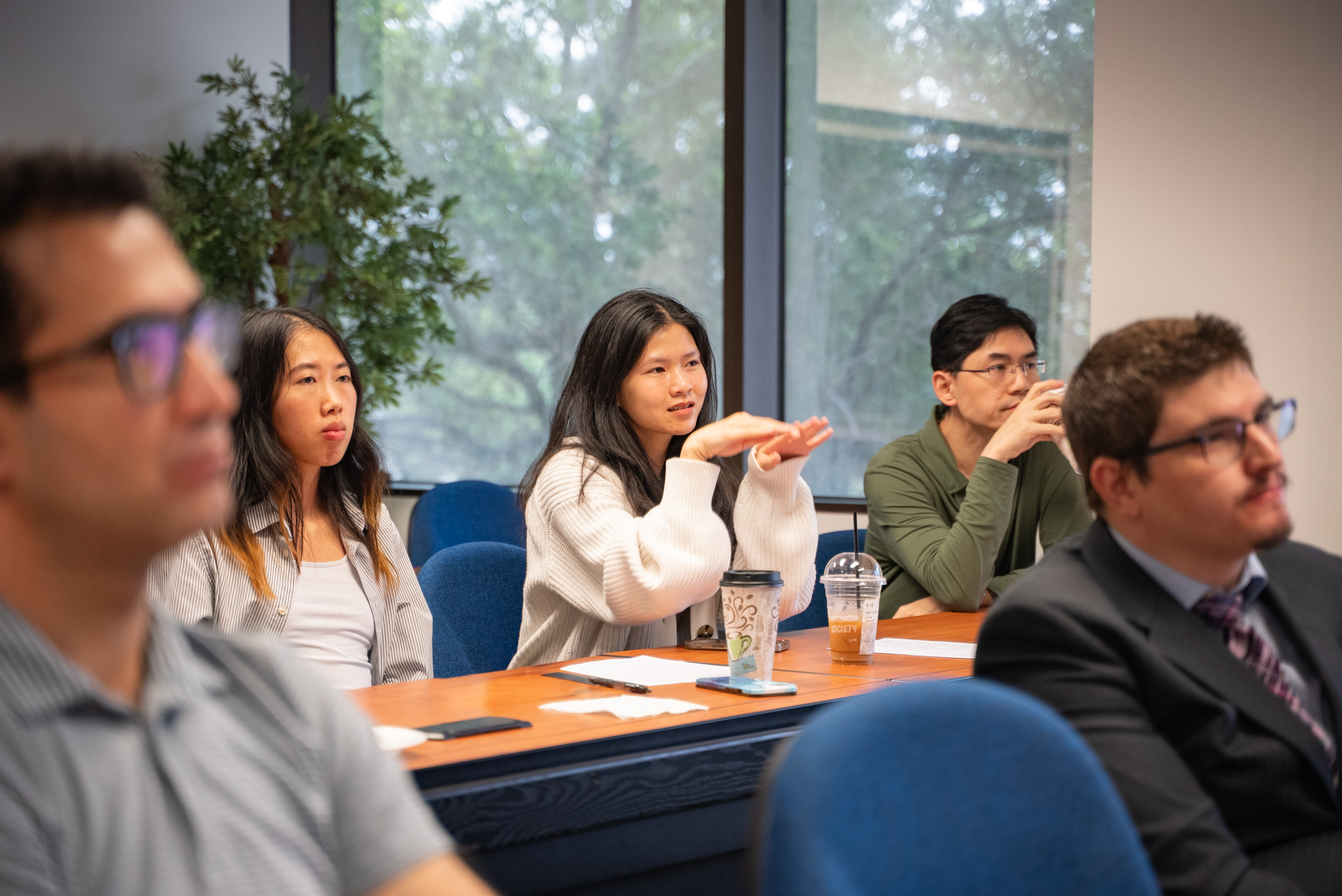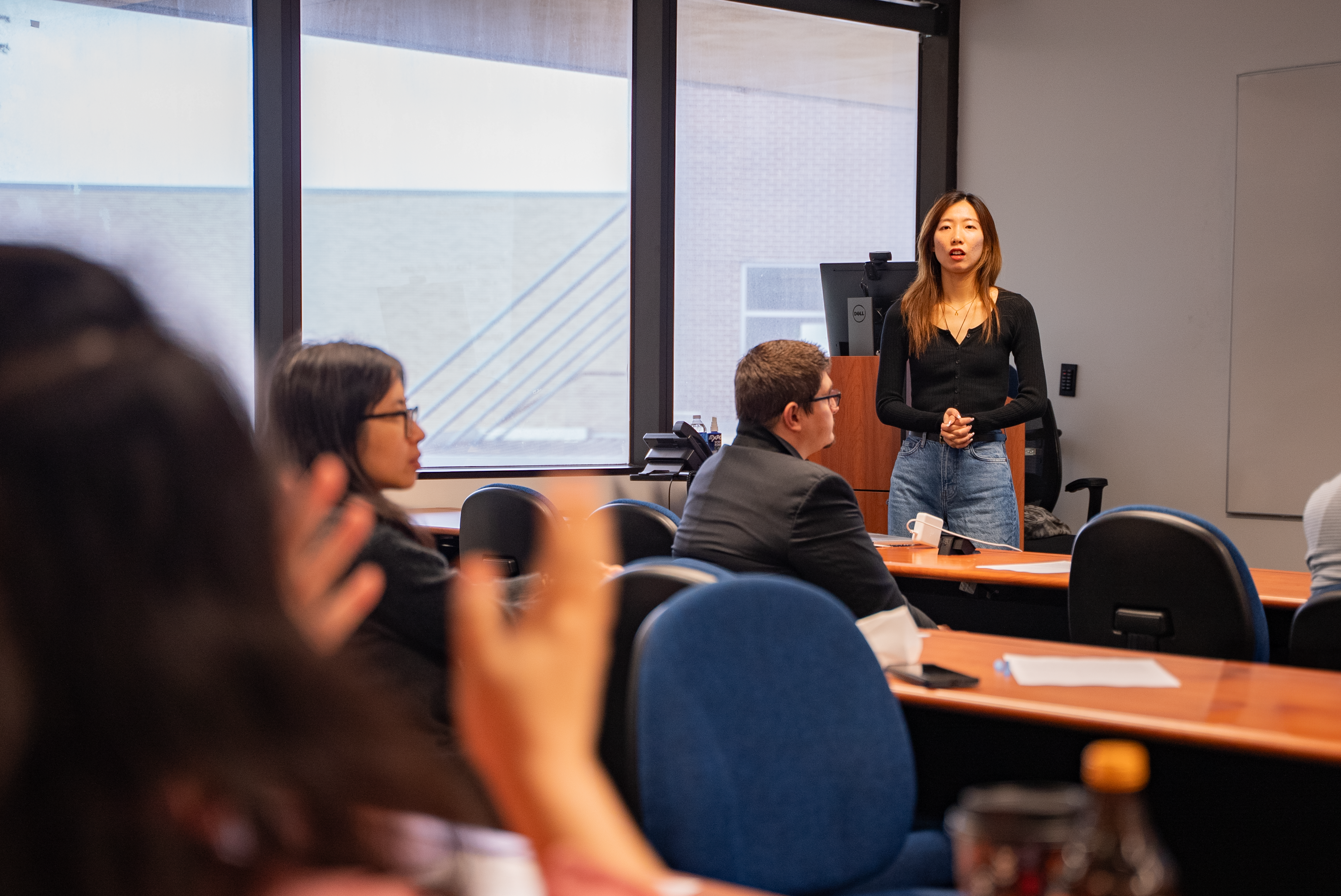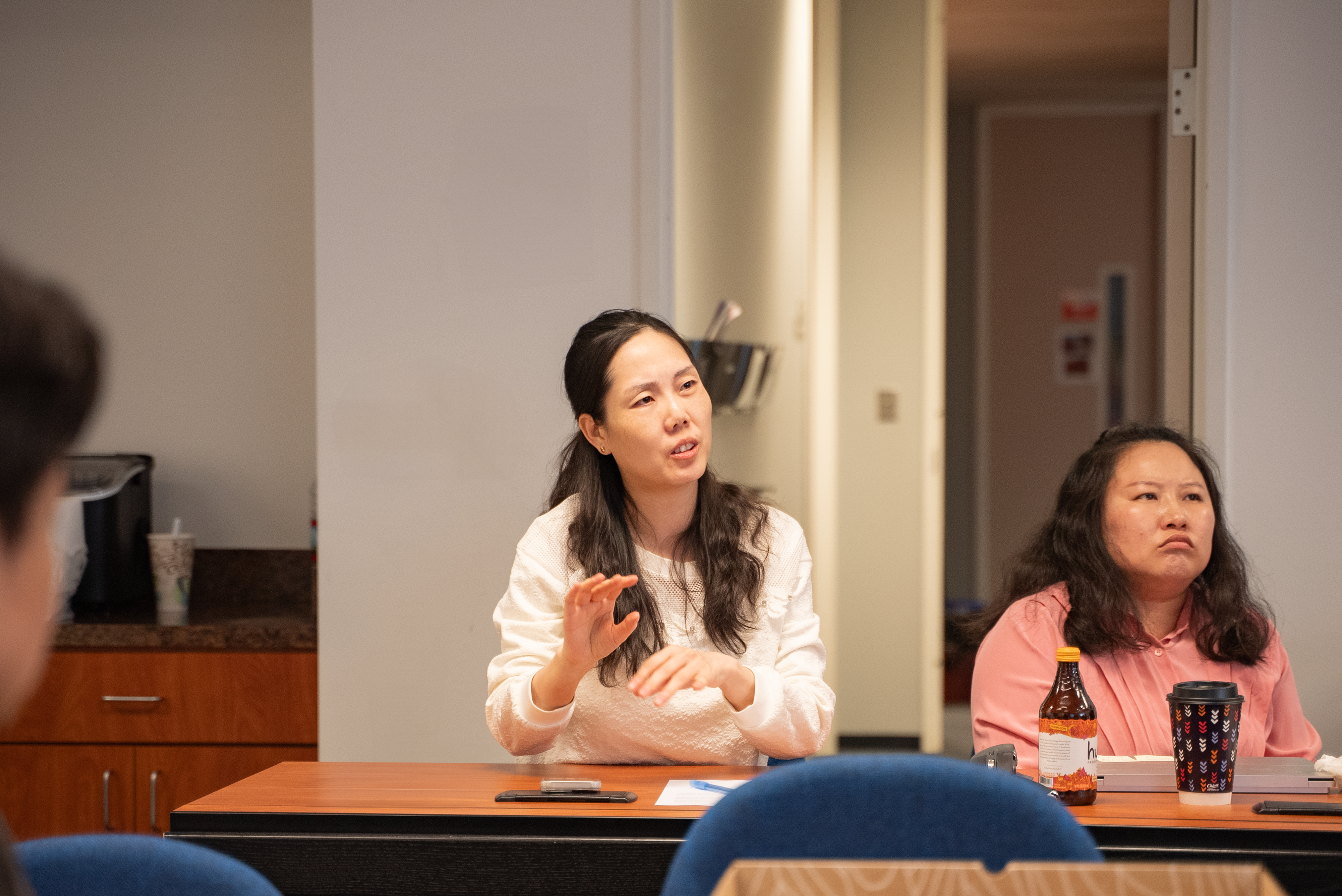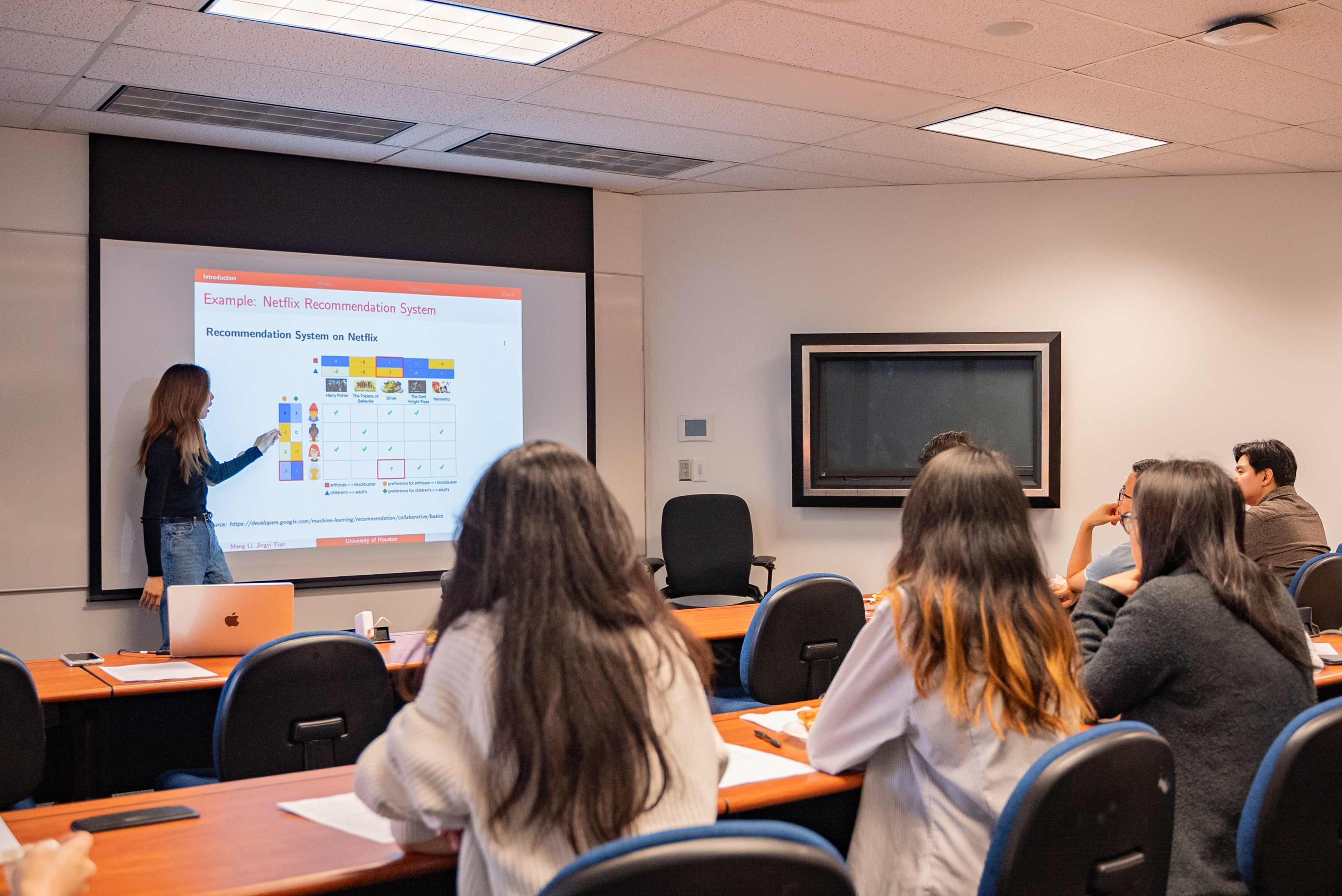Advancing AI Discussions
Bauer College Post-Doctoral Students Launch AI-Focused Luncheon Seminar Series
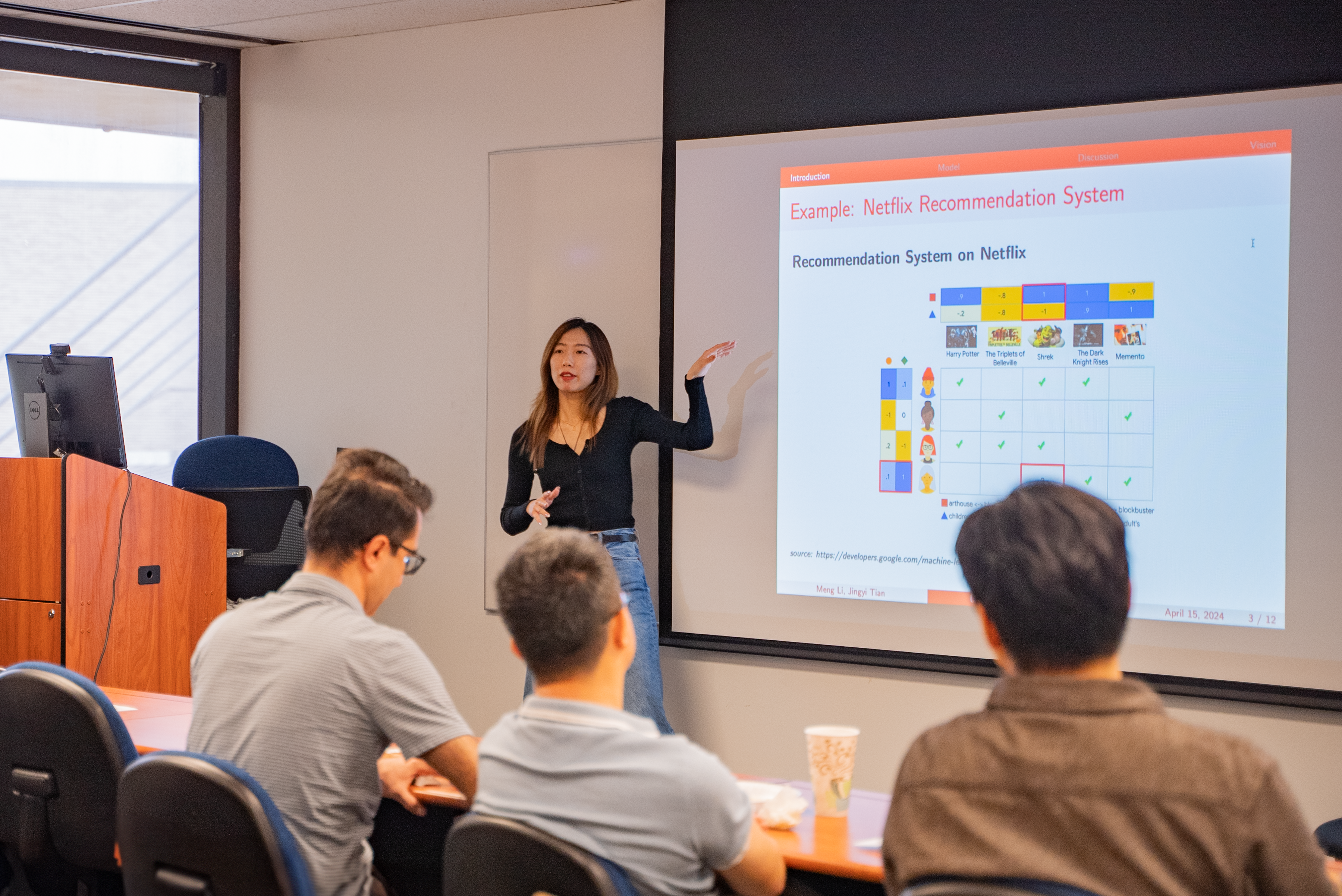
The Human-Centered Artificial Intelligence Institute (HCAII) at the C. T. Bauer College of Business has launched a series of luncheon seminars focused on artificial intelligence (AI), aiming to inspire new ideas and research in the area among doctoral students and faculty.
Led by Post-Doctoral Fellows Josh Kaisen and Jingyi Tian, each seminar features a presentation from Bauer College research faculty and students highlighting projects the speaker is working on or planning to undertake, followed by productive feedback provided by fellow researchers.
“We were talking to a lot of people about AI research, and we realized we are having the same conversation with a few people over and over again,” Kaisen said. “There is this desire for interdisciplinary collaboration within the members of the AI institute which spans throughout Bauer.”
The seminars began shortly after the establishment of the HCAII earlier this year, bringing together AI leaders and scholars to help further the advancement of the institute and its initiatives.
“The thing about AI is that it is a really competitive field,” Kaisen said. “We want to reach out to as many scholars, educators and researchers as possible. Bauer and UH are at the cutting edge of AI and being able to open that discussion to more people will help continue the advancement of this technology.”
While AI continues to be a divisive topic, at Bauer, the conversation is encouraged, with the goal of finding the balance on how humans can use the technology for good, Tian said.
“People will have many different opinions about the topic,” Tian said. “My research could be focused on the advantages of AI for specific business activities, but someone from other fields could say that there is something about my research is wrong or could be tweaked. This is why we need this kind of dialogue and exchanging of opinions among scholars.”
With over a decade of experience working in AI, Kaisen said he to use these seminars as not only an open discussion for research, but to help educate a broad audience on the state of AI and how to effectively use the technology.
“Because AI is still a very new technology, there are a lot of cautionary tales that have to be taught to use it correctly,” Kaisen said. “The nature of the training process is that it is going to take data from anywhere it can get it. This is an important reason to spread the word and make people aware of it. AI is not a one-size-fits-all kind of problem solver.”
